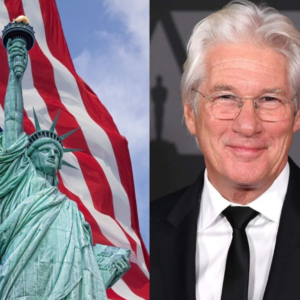Rafael Nadal, the tennis icon known for his sportsmanship and dedication, has recently come under fire for controversial comments made in response to the announcement of the sex of his new baby with wife Mery Perelló. This incident has sparked widespread discussion about gender perceptions, expectations, and the implications of such remarks from public figures.

On a seemingly joyous occasion, Mery Perelló revealed the gender of their newborn child. The couple had previously kept details of their pregnancy private, and fans eagerly anticipated this significant announcement. However, Nadals remarks during a press conference following the announcement left many in shock.

When asked about his reaction to having a baby girl, Nadal reportedly stated, I guess I have to start thinking about how to handle all the drama that comes with raising a girl. While many interpreted this as a light-hearted joke, others found it problematic, viewing it as a perpetuation of sexist stereotypes surrounding women and their behavior.

Social media erupted with reactions to Nadals comments almost instantaneously. Supporters of gender equality and womens rights criticized him for reinforcing outdated notions that girls are inherently more difficult or dramatic to raise than boys. Tweets, Facebook posts, and Instagram stories flooded timelines, calling for Nadal to apologize and reconsider his views.
Prominent figures in sports and activism also weighed in. Many emphasized the responsibility that comes with being a role model, particularly for young fans who look up to Nadal as a symbol of excellence in sportsmanship and professionalism. Critics argued that such remarks not only reflect personal views but also influence societal attitudes towards gender roles and expectations.
This incident is not isolated. Gender stereotypes continue to pervade many aspects of society, from advertising and entertainment to sports and family dynamics. The idea that raising a girl is inherently more challenging than raising a boy feeds into a broader narrative that devalues womens experiences and contributions. As society moves towards greater equality, it is vital for public figures to set positive examples and challenge these stereotypes.
Research shows that parental expectations can shape childrens identities and self-perception. When parents subscribe to traditional gender roles, they may unconsciously limit their childrens potential by enforcing specific behaviors based on their gender. Nadals comments contribute to this environment by implying that daughters are inherently more complicated, which can lead to negative implications for how families view and treat their female children.
Conversely, acknowledging and celebrating the unique qualities and strengths of all children, regardless of gender, can promote healthier family dynamics and empower the next generation to break free from these constraints.
In the wake of such remarks, public figures like Nadal must take responsibility for their words and the impact they have on society. Apologies and clarifications can go a long way in mending relationships with fans and restoring faith in their commitment to progressive values. Many advocates for gender equality argue that it is not enough to be a supporter; one must actively challenge outdated notions and strive to foster inclusivity.
An appropriate response from Nadal could involve an acknowledgment of the sensitivity surrounding gender-related topics and a commitment to promoting equality in his public statements. It is essential for athletes and celebrities to understand their influence and the importance of using their platforms to uplift rather than reinforce negative stereotypes.
The controversy surrounding Nadals remarks serves as a teachable moment for both fans and celebrities alike. It highlights the need for ongoing conversations about gender perceptions, stereotypes, and the expectations placed on both parents and children. Here are some key takeaways from the situation:
1. Recognize the Influence of Language: Words matter, especially for public figures. Remarks, even if intended as jokes, can perpetuate harmful stereotypes and affect societal perceptions.
2. Embrace Gender Neutrality: Encouraging a more gender-neutral approach to parenting can help break down the barriers that limit childrens potential based on their gender.
3. Promote Positive Role Models: Celebrities and athletes should strive to be role models who champion equality and challenge traditional stereotypes, paving the way for future generations to thrive in a more inclusive society.
4. Encourage Open Dialogue: Conversations about gender expectations should be encouraged, allowing for diverse perspectives and promoting understanding and empathy.
As the public reacts to Nadals remarks, it is essential for society to engage in constructive conversations about gender perceptions and stereotypes. Nadal has the opportunity to learn from this incident and become an advocate for gender equality. By using his platform to promote positive change, he can transform this controversy into an opportunity for growth and reflection.
In conclusion, Nadals recent comments regarding the announcement of his babys gender have ignited a significant conversation about sexism and gender stereotypes. The response from the public emphasizes the importance of accountability, the influence of public figures, and the ongoing need for conversations about gender equality. As society evolves, it is crucial for all of us, including celebrities, to challenge outdated notions and work towards a more inclusive future for everyone, regardless of gender.





